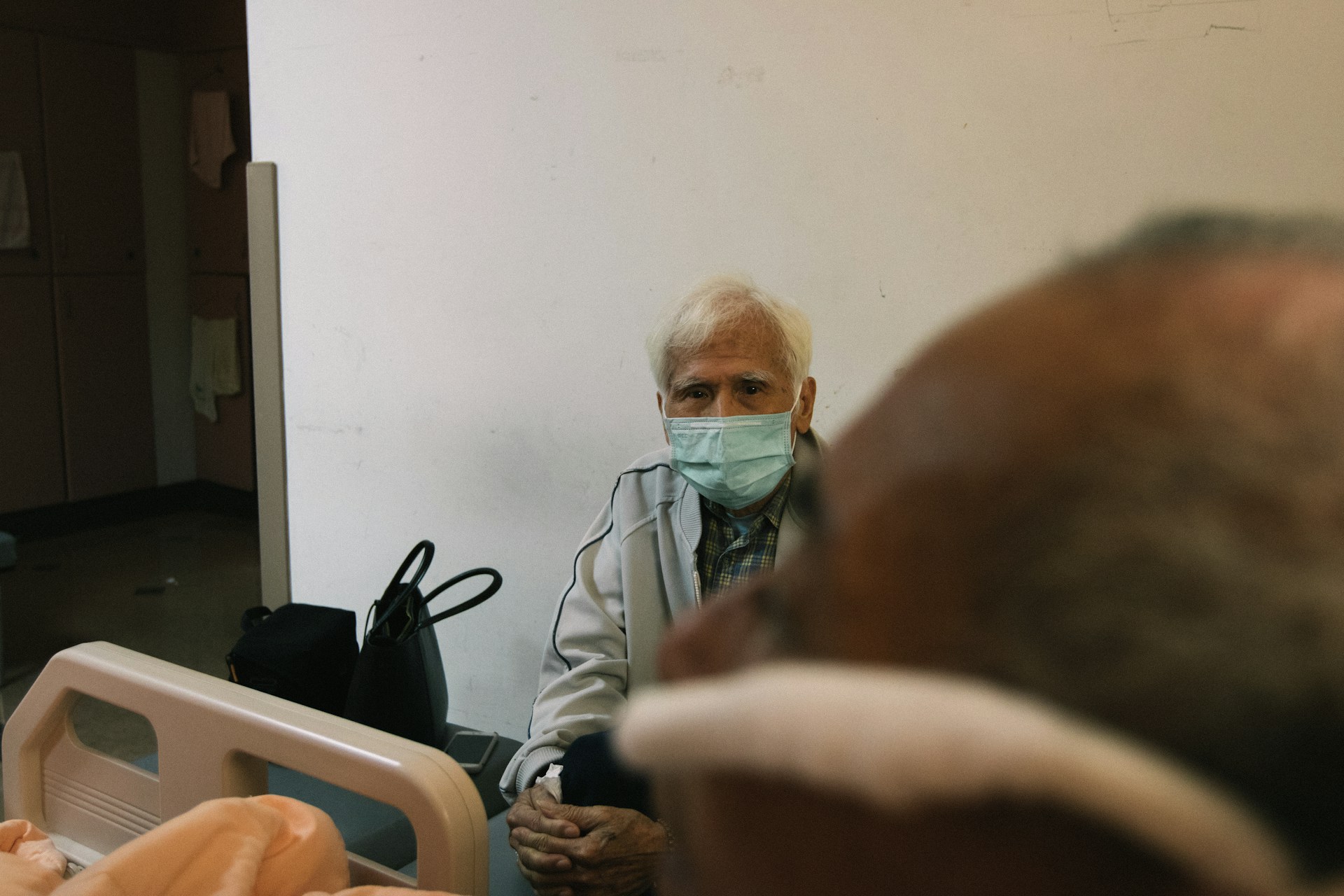The Effect of Exclusive Breastfeeding Methods on Working Mothers with WFH on the Nutritional Status of Babies During the COVID-19 Pandemic
Pengaruh Metode Pemberian ASI Eksklusif pada Ibu Bekerja secara WFH terhadap Status Gizi Bayi Masa Pandemi COVID-19
Downloads
Background:Food intake, exclusive breastfeeding, and nutritional adequacy can affect normal nutritional status in children, especially during the first 1000 days of life.
Objectives:Analyzing the effect of the exclusive breastfeeding method on the nutritional status of infants in Work From Home (WFH) working mothers
Methods:The study was conducted quantitatively descriptively with a cross-sectional study design. Research respondents were selected mothers during the Covid-19 pandemic (PSBB or PPKM levels 3-4, namely from April 2020 to October 2021) who provided exclusive breastfeeding, and respondents worked under the WFH scheme. Respondents totaled 27 people who were divided into direct-breastfeeding (DBF) and mixed-feeding (MF) groups. Respondents have selected purposively sampling. meetings online namely by using platforms, namely Whatsapp and Zoom.
Results:Significantrelationship between exclusive breastfeeding methods with a weight-for-height z score (WHZ) (P = 0.031; R = -0.417) and a bmi-for-agez score (BAZ) (P = 0.044; R = -0.391), In addition, a significant difference was found between the mean of the DBF and MF groups on the WHZ (P=0.031) and WHZ (P=0.044) with the mean nutritional status of MF on the BB/TB or BB/PB index of 0.490. ± 0.970SD (at risk of overweight).
Conclusions:Exclusive breastfeeding method has a significant relationship with normal baby weight. In addition, there are significant differences in the nutritional status of infants between the DBF and MF breastfeeding methods. babies with the MF method tend to be at risk of more nutrition. Mothers who work WFH are expected to maximize exclusive breastfeeding for babies, especially with the DBF breastfeeding method. In addition, the researchers hope that this research can serve as an advocate for the draft government regulation regarding 6 months of maternity leave to maximize exclusive breastfeeding for babies.
Chandy, L. New insights: 21st century malnutrition Unpacking the triple burden for children nutritional wellbeing. UNICEF for every child https://www.unicef.org/globalinsight/stories/new-insights-21st-century-malnutrition#:~:text=It%20describes%20a%20triple%20burden,occur%20in%20the%20same%20family. (2020).
Hardinsyah, M. & Supriasa, I. D. N. Ilmu Gizi Teori dan Aplikasi. (Penerbit Buku Kedokteran EGC, 2016).
Nurita, D. Jokowi Jelaskan Alasan Akhirnya Melarang Mudik Lebaran 2020. nasional.tempo.co (2020).
Retno Ekawati, F. Hubungan Konsumsi Kopi dengan Status Gizi Pada Pekerja WFH Selama Covid-19 di Surabaya The Correlation Between Coffee Consumption With The Nutritional Status Of WFH Workers During Covid-19 in Surabaya. (2021).
Salain, P. P. P., Adiyadnya, M. S. putra & Rismawan, P. A. E. Studi Ekksplorasi Dampak Work From Home pada Kinerja Karyawan BUMN di Wilayah Denpasar di Masa Pandemi Covid-19. Jurnal Satyagraha 03, 19–27 (2021).
Quílez-Robres, A., Lozano-Blasco, R., íñiguez-Berrozpe, T. & Cortés-Pascual, A. Social, Family, and Educational Impacts on Anxiety and Cognitive Empathy Derived From the COVID-19: Study on Families With Children. Front Psychol 12, (2021).
Sakalidis, V. S. et al. Wellbeing of breastfeeding women in australia and new zealand during the covid"19 pandemic: A cross"sectional study. Nutrients 13, (2021).
Badan Pusat Statistik. Persentase Bayi Usia Kurang Dari 6 Bulan Yang Mendapatkan ASI Eksklusif Menurut Jenis Kelamin (Persen), 2019-2021. Badan Pusat Statistik https://www.bps.go.id/indicator/30/1341/1/persentase-bayi-usia-kurang-dari-6-bulan-yang-mendapatkan-asi-eksklusif-menurut-jenis-kelamin.html (2021).
Yuniarti, W., Wiboworini, B., Dewi, Y. L. R. & Widardo, W. Metode pemberian ASI eksklusif memengaruhi status gizi. Jurnal Gizi Klinik Indonesia 16, 87 (2020).
Wallenborn, J. T. et al. Breastfeeding, physical growth, and cognitive development. Pediatrics 147, (2021).
Azad, M. B. et al. Infant feeding and weight gain: Separating breast milk from breastfeeding and formula from food. Pediatrics 142, (2018).
Lampau, B. Metode Penelitian Kesehatan: Metode Penulisan Skripsi, Tesis, dan Disertasi. (Yayasan Pustaka Obor Indonesia, 2015).
Holand, B. L. et al. Association between breastfeeding and complementary feeding in pre-pandemic and pandemic COVID-19 times: maternar cohort study. J Pediatr (Rio J) (2022) doi:10.1016/j.jped.2021.12.007.
Almatsier, S. Gizi Seimbang dalam Daur Kehidupan. (PT. Gramedia Pustaka Utama, 2011).
Novyanti, R. D. Hubungan Status Gizi Terhadap Nilai Ujian Nasional Siswa SDN Margomulyo III Bojonegoro. (2015).
Kemenkes RI. Peraturan Menteri Kesehatan Republik Indonesia No 2 Tahun 2020 tentang Standar Antropometri Anak. (2020).
Pham, Q., Patel, P., Baban, B., Yu, J. & Bhatia, J. Factors Affecting the Composition of Expressed Fresh Human Milk. Breastfeeding Medicine 15, 551–558 (2020).
Ballard, O. & Morrow, A. L. Human Milk Composition. Nutrients and Bioactive Factors. Pediatric Clinics of North America vol. 60 49–74 Preprint at https://doi.org/10.1016/j.pcl.2012.10.002 (2013).
Schueler, J., Alexander, B., Hart, A. M., Austin, K. & Enette Larson-Meyer, D. Presence and dynamics of leptin, GLP-1, and PYY in human breast milk at early postpartum. Obesity 21, 1451–1458 (2013).
Pham, Q., Patel, P., Baban, B., Yu, J. & Bhatia, J. Factors Affecting the Composition of Expressed Fresh Human Milk. Breastfeeding Medicine 15, 551–558 (2020).
Li, R., Fein, S. B. & Grummer-Strawn, L. M. Association of breastfeeding intensity and bottle-emptying behaviors at early infancy with infants' risk for excess weight at late infancy. Pediatrics 122, (2008).
Li, R., Fein, S. B. & Grummer-Strawn, L. M. Do infants fed from bottles lack self-regulation of milk intake compared with directly breastfed infants? Pediatrics 125, (2010).
Rasmussen, K. M. & Geraghty, S. R. The quiet revolution: Breastfeeding transformed with the use of breast pumps. American Journal of Public Health vol. 101 1356–1359 Preprint at https://doi.org/10.2105/AJPH.2011.300136 (2011).
Eidelman, A. I. & Schanler, R. J. Breastfeeding and the use of human milk. Pediatrics vol. 129 Preprint at https://doi.org/10.1542/peds.2011-3552 (2012).
Li, R., Magadia, J., Fein, S. B. & Grummer-Strawn, L. M. ARTICLE Risk of Bottle-feeding for Rapid Weight Gain During the First Year of Life. Arch Pediatr Adolesc Med vol. 166 http://archpedi.jamanetwork.com/ (2012).
Spatz, D. L. Preventing obesity starts with breastfeeding. Journal of Perinatal and Neonatal Nursing 28, 41–50 (2014).
Li, R., Magadia, J., Fein, S. B. & Grummer-Strawn, L. M. ARTICLE Risk of Bottle-feeding for Rapid Weight Gain During the First Year of Life. Arch Pediatr Adolesc Med vol. 166 (2012).
Fehr, K. et al. Breastmilk Feeding Practices Are Associated with the Co-Occurrence of Bacteria in Mothers' Milk and the Infant Gut: the CHILD Cohort Study. Cell Host Microbe 28, 285-297.e4 (2020).
Forster, D. A. et al. Feeding infants directly at the breast during the postpartum hospital stay is associated with increased breastfeeding at 6 months postpartum: a prospective cohort study. BMJ Open 5, (2015).
Pang, W. W. et al. Direct vs. Expressed breast milk feeding: Relation to duration of breastfeeding. Nutrients 9, (2017).
Lucas, R. et al. Effect of Maternal Body Mass Index on Infant Breastfeeding Behaviors and Exclusive Direct Breastfeeding. Journal of Obstetric, Gynecologic & Neonatal Nursing 44, 772–783 (2015).
Anindya, I. G., Salimo, H. & Dewi, Y. L. R. Hubungan Pemberian ASI Eksklusif Dan Status Gizi Ibu Dengan Pertumbuhan Lingkar Kepala Bayi Usia 6 Bulan. Amerta NUTR 3, 263–268 (2019).
Ferreira, H. D. S., Xavier Júnior, A. F. S., de Assunçí£o, M. L., dos Santos, E. A. & Horta, B. L. Effect of breastfeeding on head circumference of children from impoverished communities. Breastfeeding Medicine 8, 294–301 (2013).
Sunarti, Asfar, A. & Alkatiri, N. H. Hubungan Lingkarkepala Dengan Perkembangan Motorik Pada Anak Usia 1-24 Bulan Di Rumah Sakit Ibu Dan Anak Sitti Khadijah 1 Muhammadiyah Makassar. Bina Generasi ; Jurnal Kesehatan 1, 21–29 (2020).
Septiana, R., Djannah, R. S. N. & Djamil, M. D. Hubungan Antara Pola Pemberian Makanan Pendamping ASI (MP-ASI) dan Status Gizi Balita Usia 6-24 Bulan di Wilayah Kerja Puskesmas Gedongtengen Yogyakarta. Kes Mas : Journal Fakultas Kesehatan Masyarakat Universitas Agmad Dahlan 4, (2010).
Sakti, R. E., Hadju, V. & Rochimiwati, S. N. Hubungan Pola Pemberian MP ASI dengan Status Gizi Anak Usia 6-23 Bulan di Wilayyah Pesisir kecamatan Tallo Kota Makassar Tahun 2013. Jurnal MKMI K 1–12 (2013).
Copyright (c) 2022 Amerta Nutrition

This work is licensed under a Creative Commons Attribution-ShareAlike 4.0 International License.
AMERTA NUTR by Unair is licensed under a Creative Commons Attribution-ShareAlike 4.0 International License.
1. The journal allows the author to hold the copyright of the article without restrictions.
2. The journal allows the author(s) to retain publishing rights without restrictions
3. The legal formal aspect of journal publication accessibility refers to Creative Commons Attribution Share-Alike (CC BY-SA).
4. The Creative Commons Attribution Share-Alike (CC BY-SA) license allows re-distribution and re-use of a licensed work on the conditions that the creator is appropriately credited and that any derivative work is made available under "the same, similar or a compatible license”. Other than the conditions mentioned above, the editorial board is not responsible for copyright violation.












































